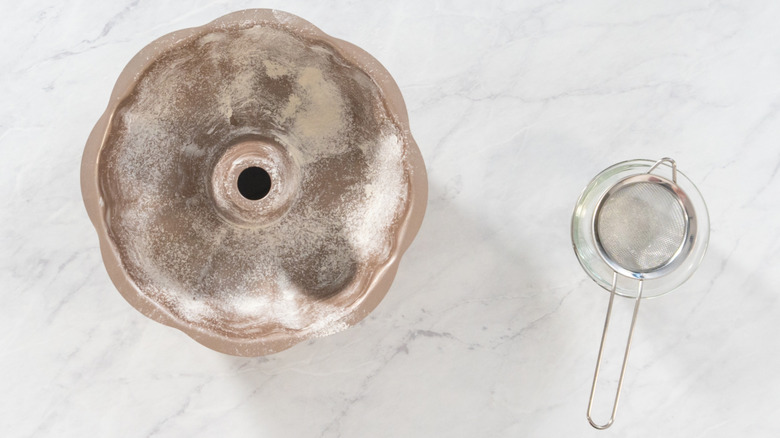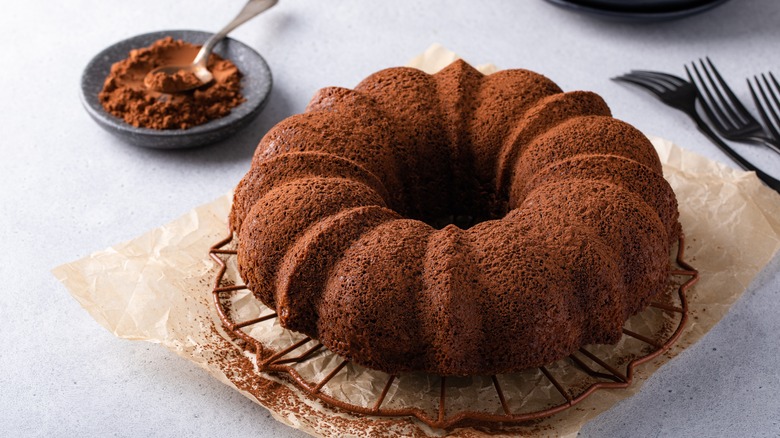How To Grease A Bundt Pan
If you've ever baked a Bundt cake, you know the decorating is easy (just dust with powdered sugar) while flipping the cake out of the pan can be a challenge. Cooking spray won't work in a baking pan; baking spray, which contains flour, can be expensive. So, what's the best way to grease a Bundt cake pan?
Be sure to use a nonstick pan that's not too dark in color, is made of metal, and is clean. Melt shortening or unsalted butter, and cool it slightly. Using a pastry brush (or, in a pinch, a paper towel over your finger), coat the inside of the Bundt pan with shortening. Be thorough. Then, cover this with flour (¼ cup or less) using a dusting wand.
If you want to give it a little extra power, one tip from John Whaite of the "Great British Baking Show" is to freeze the pan with butter in it, then add an extra layer of butter before flouring. In either case, shake the pan to make sure the flour is evenly distributed. Then, remove any extra flour by giving it a gentle shake upside-down. You can cover the pan with plastic wrap or a towel if you wish to minimize the mess, or simply shake it over the sink.
Substitute cocoa powder for flour in your cake goop
If you're looking to level up that Bundt cake, you can substitute sugar in for flour during the coating stage, which will add a decadent, crackled finish. In a chocolate cake, try sprinkling unsweetened cocoa powder on the butter in your Bundt pan instead of flour. This will add a delightful chocolate flavor and help to give you a smooth transfer from the Bundt pan to the cooling rack.
Don't be afraid to substitute a bit of the flour with spices that complement your cake flavor. If you're making a fall cake, why not try using cinnamon butter or butter mixed with the spices you might find in a pumpkin spice latte? Mix them with oil and flour to create an autumnal cake goop. In fact, cake goop is the best way to grease a bundt pan. If there are nuts in your recipe, you could also use almond flour to add flavor and texture on the outside of your cake.
You have the option to use a butter knife or a thin spatula around the edge of the cake pan before braving the inversion. This can be helpful for the tube in the middle. After the cake cools for 10 to 20 minutes, place a baking rack on top of your Bundt pan, wear oven-safe gloves, and flip it over. Let the cake cool completely. The Bundt pan has done much of the decorating work for you, so consider a simple drizzle of icing on top.

